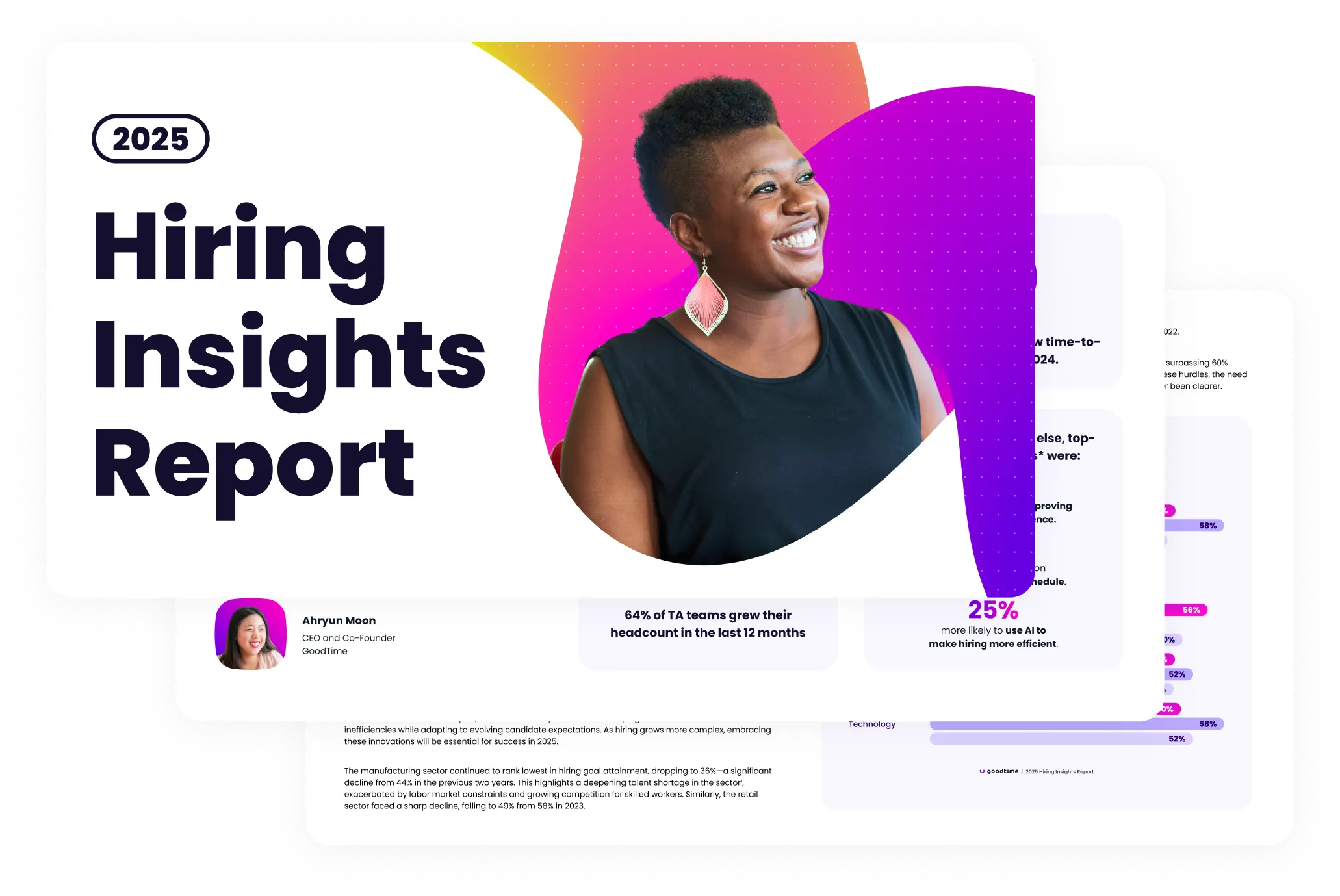Table of Contents
You already know that interviewer training doesn’t stop after the interviews begin, but are you putting enough focus on your interview debrief? Too many recruitment pros run debriefs that essentially consist of asking hiring managers how the interview went. Respectfully, that is not going to do much to help your process.
Interviewers and hiring managers need a little more hand-holding. They need pointed, guided, specific questions to help them determine how an interview went. They might have a gut feeling, but as we all know, hiring with your gut is often not the best way to secure long-lasting, high-performing hires.
To eliminate biases, remain objective, and make the best possible hiring choice, it’s key to standardize your entire hiring process, starting with an effective intake meeting and rounding out with a post-interview debrief.
There are tons of articles for candidates about how to nail the all-important interview, but there’s a surprising lack of information for interviewers about how to run a productive interview debrief with the hiring team. But we’ve got your back.
We’ve collected five key expert-vetted questions to help you run efficient and effective debriefs.

Unlock 2025’s top hiring strategies: Insights from 500+ TA leaders
Be the first to uncover deep hiring insights specific to your sector — straight from the highest-performing TA teams.

1. Did the candidate seem excited about working here?
While some individuals are just naturally reserved, it’s easy to tell if someone is excited at the prospect of working for your company if you know what to look for. Little things like sustaining eye contact, asking questions, and trying to start a conversation are all baseline metrics.
Other tell-tale signs are making references to research they did about your company. This should go beyond just knowing when you were founded or your CEO’s name and can include referencing events that involve the team, your company’s core values (and how they align with them), and more.
Above all, if you ask them why they want to work there, they should have an answer.
2. Should anyone else interview the candidate?
Besides the obvious individuals who they should speak to (their potential manager, team members, someone to interview for a core values-fit, HR phone screen, etc.), there might be an additional person that the HR Manager wants them to speak with before proceeding with an offer.
Bringing this up during the post-interview roundup helps you avoid a potential backlog when it comes to bringing an offer (or not) to a candidate. After all, we’re living in a job market where candidate relationships are key, and this means fostering a smooth and swift interview process.
3. Is the candidate able to cope with failure?
As you undoubtedly learned in training on conducting stellar interviews, the questions that you ask provide a window into a candidate’s future performance. Bouncing back from failure is an essential skill, yet only 27% of employees have high levels of resilience. Failure, and the candidate’s reaction to it, is a crucial topic to broach both during the interview and the debrief.
4. Do they align with the attributes we’re looking for?
Defining your focus is incredibly important when it comes to making sure your post-interview roundup runs quickly and smoothly. When as much as 80% of employee turnover is due to bad hiring decisions, thoughtfully considering your ideal candidate’s qualities can translate to better employee retention.
The first step is setting a candidate scorecard through your Applicant Tracking System. A candidate scorecard will give you and the other interviewers different categories and subcategories to focus on during the roundup, such as whether the candidate was collaborative, analytical, and receptive to feedback.
We recently spoke with Jenny Jongejan, a deeply experienced senior recruiting consultant and standardization fanatic about how standardization prevents mis-hires. She shared a four-step framework for standardizing your process that starts with aligning on key attributes. Getting everyone on the same page about these upfront is a great way to jumpstart your entire process and have an effective debrief conversation.
You can check out her full four-step framework in the short clip below.
5. Do we want to hire the candidate for the right reasons?
Join a community just for talent pros
GoodTime Talent Innovators is an online community for TA professionals to engage in discussions, network with one another, and discover exclusive events.

You never want to hire someone just because everyone’s feeling the strain left by the open position. With poor hiring decisions costing companies up to $240,000, the harm of hiring someone who’s a bad fit is astronomical and way more costly than the interview process as a whole.
Taking a step back and discussing with each other if you want to continue with the candidate because they’re a good fit or just because there’s a critical need will save your company upwards of millions of dollars in the long run.
You’ve aced the post-interview debrief. Now, let’s optimize the entire process.
We all want to excel at our jobs. But sometimes, you need a little extra firepower in your corner. That’s what GoodTime Hire is here for.
Hire elevates your team’s interviewing skills with interviewer training paths that broaden your pool of interviewers and reduce each person’s load. Remove bottlenecks, increase interviewer diversity, and take your interviewing process to the next level.
Discover how GoodTime Hire’s interview scheduling software creates empowered interviewers.




